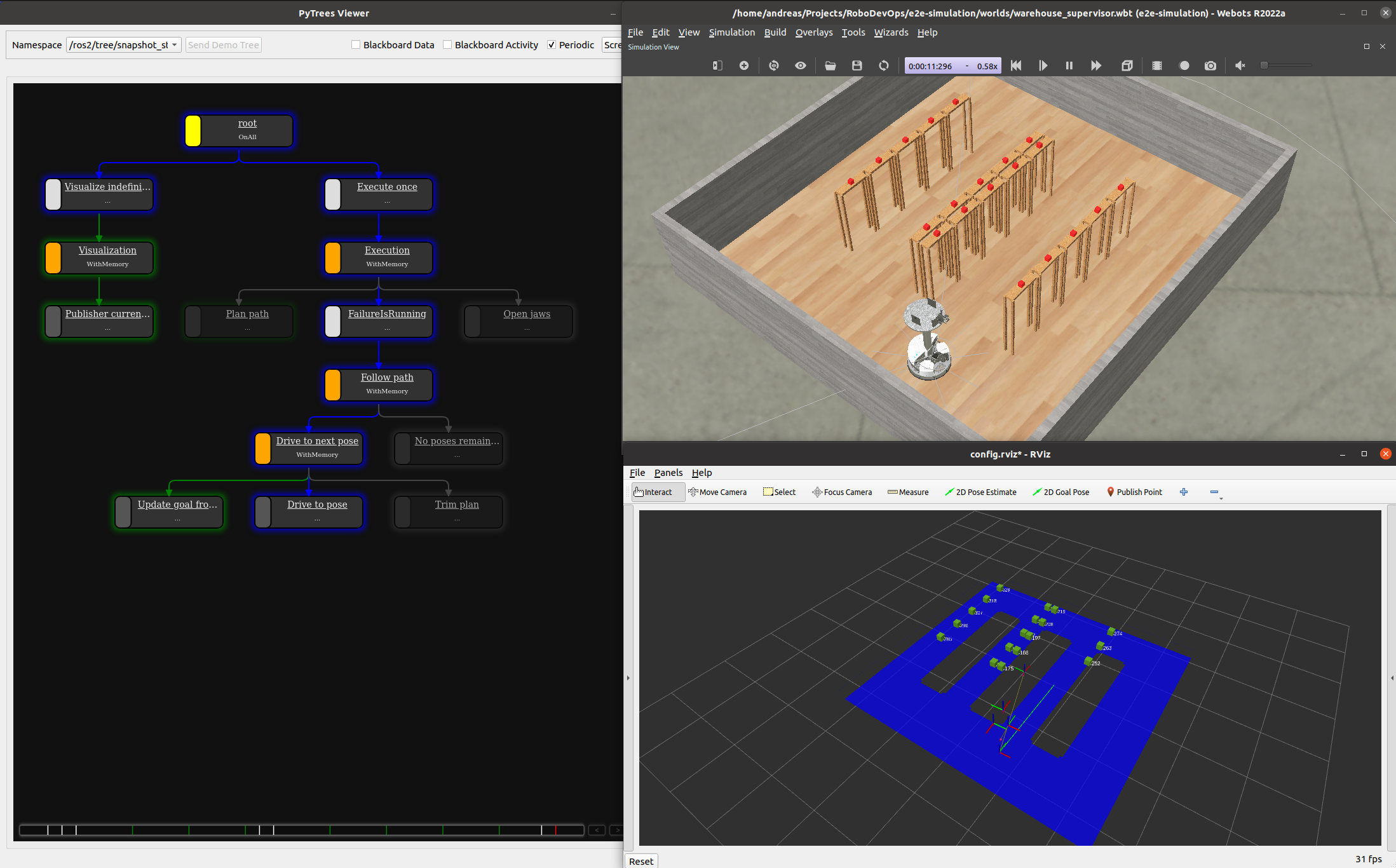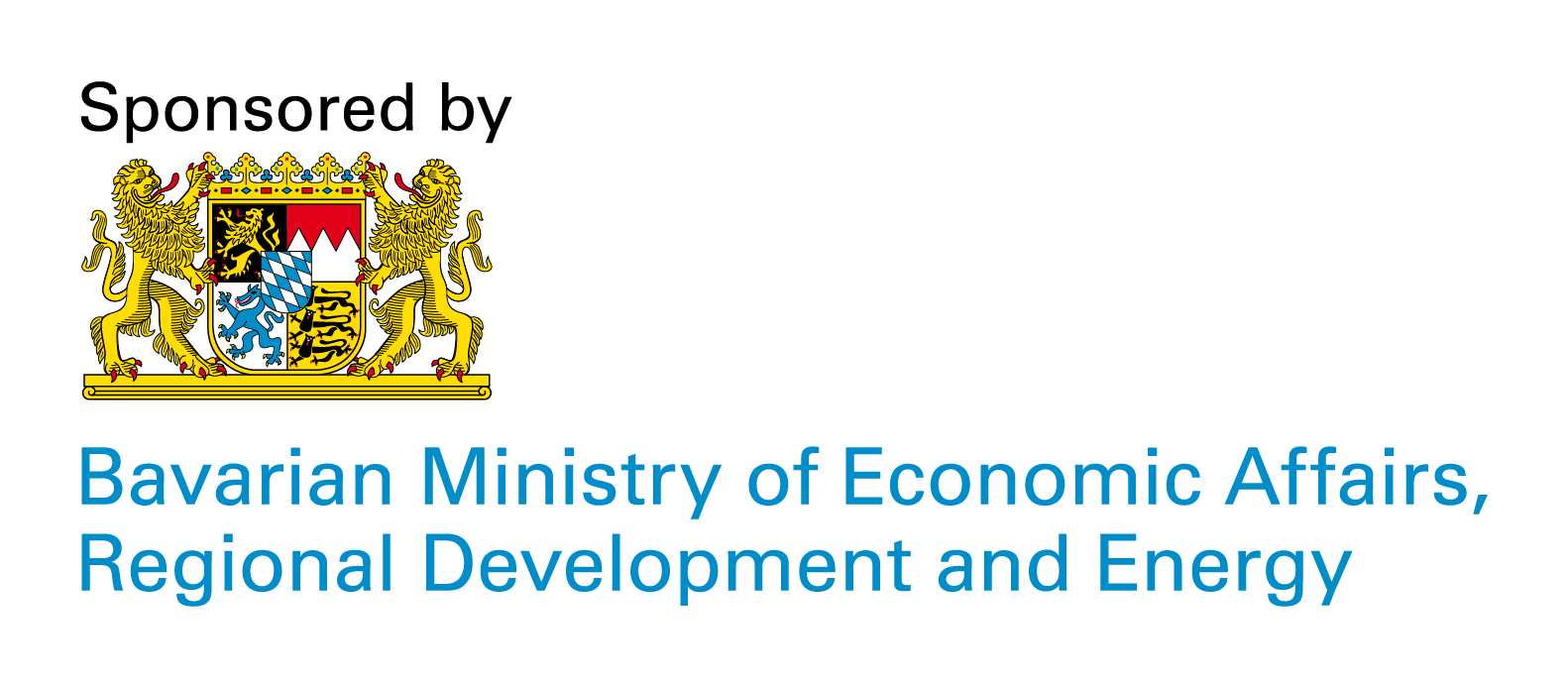In the age of digitalization, the competitiveness of many businesses depends heavily on the quality and adaptability of their software. To respond successfully to these requirements, it has become an industry standard to take the DevOps approach during the development of purely software-based systems. This approach relies on a successful form of cooperation between the previously isolated fields of development and IT operations, which enables processes to be optimized, updates to be carried out more quickly and efficiently, and customers to be better served as a result.
RoboDevOps – continuous development and ensuring the reliability of autonomous, mobile robot systems

With the integration of tried-and-tested DevOps principles, it could also be possible for the field of robotics to derive considerable benefit from the optimized integration of updates. This was the objective and challenge Fraunhofer IKS took on in cooperation with the robotics and logistics company Magazino GmbH.
Challenges in DevOps for cyber-physical systems
The “RoboDevOps” project, which was funded by the Bavarian Ministry of Economic Affairs, Regional Development and Energy, ran from October 2020 until September 2022. Its goal: To bring autonomous mobile robot fleets (AMRs) up-to-date more rapidly and to expand their capabilities. In contrast to straightforward software applications, however, robots and embedded systems are highly complex and depend on many more factors. During the implementation of the DevOps principles, the experts succeeded in identifying three key difficulties:
- The combination of hardware and software (interactions between artificial intelligence, sensors, and actuators, for example)
- Uncertainties due to the operating environment (interactions with people, for example)
- Distributed infrastructure (combination of cloud and local services, for example)
Due to these interdependencies, each retrofit requires complex test cycles to ensure the quality and functionality of the software. This makes achieving a sufficient level of test coverage and the structuring of the release process for all the functions considerably more difficult and time-consuming.
Magazino and Fraunhofer IKS carry out research into the transfer of DevOps principles to robotics
The Fraunhofer IKS has extensive expertise in the DevOps-based development of software and in the research areas of embedded systems and AI. It was therefore able to contribute an in-depth understanding of the benefits that DevOps promises for robotics and the unique challenges that arise. Through frequent discussions and close cooperation, it was possible to combine the practical expertise of Magazino with the scientific competencies of the Fraunhofer IKS and to develop specific solutions for the identified challenges. The project focused on the following key areas:
- Reduction of the turnaround time through an automated test selection and automated test procedures
- Increase in the test quality through the systematic selection of test scenarios, the testing of non-deterministic robotic systems, and the development of methods and metrics for assessing the behavioral quality
- More control over which software is installed on which robots, using methods for the controlled feature roll-out and release management
- Runtime monitoring and analysis of the robots in the field, for quality measurements and insights for subsequent update cycles
Practical test on real robot systems: DevOps enables virtual test runs and optimum collaboration

Until now, software updates always had to be tested with the use of elaborate trial scenarios in an appropriately-equipped test hall. The procedures and tools developed in the project now also allow test runs to be carried out in a virtual simulation environment. This means that the workload required to prepare the test hall can be reduced to the implementation of a limited number of critical scenarios.
In addition to the technical improvements, the implementation of the DevOps principles also led to a change of mindset in the project team which spread to the entire development team. The RoboDevOps project succeeded in optimizing the collaboration between teams on multiple levels, from the software development through to the system support. This was achieved by creating a joint “language” and understanding of the processes on the one hand, and by developing and testing structured and largely automated processes on the other.
The research findings obtained during the project will eventually be integrated into the software development process at Magazino. It is expected that this will lead to the quicker roll-out of superior software at a lower cost of resources as well as the strengthening of Magazino’s competitiveness.
Expanding expertise for industry
Germany already has a powerful robotics industry, consisting of established companies in the fields of industrial robotics and mobile robotics as well as wide-ranging startups and spin-offs from universities and research centers. All these players are faced with the challenge of increasing the flexibility of robot programming while at the same time, ensuring high levels of quality. The joint RoboDevOps project has identified best practices for the development of robot software that have been tested and validated at a leading German robotics company, as well as a modeling language which enables the execution of test cases in a simulation environment.
The project also generated significant added value for manufacturers: Many of these companies are increasingly using AGVs (automated guide vehicles) in their intralogistic processes, such as the on-site transportation of boxes and pallets. Some of these companies – particularly those in the automotive industry and their suppliers – are establishing their own expertise for developing these autonomous transporters. As such, even these traditionally strong companies benefit both from more robust and more mature mobile robotics systems as well as from improved software engineering products for their in-house development of robotic systems.
DevOps for cyber-physical systems
As part of this project, which began in October 2020 and ran through September 2022, Fraunhofer IKS and Magazino GmbH have produced a white paper on the challenges and potential of DevOps for the development of cyber-physical systems. In this, the researchers answer questions such as how DevOps differs from traditional software development and how DevOps processes can be implemented in view of the challenges posed.
If you already have experience with DevOps at your company or are interested in the subject, we look forward to hearing from you.
Likewise, if you have any questions about the project, its research issues and its objectives, please do not hesitate to get in touch with the contacts listed here.

The project is being sponsored by the Bavarian Ministry of Economic Affairs, Regional Development and Energy (StMWi).
 Fraunhofer Institute for Cognitive Systems IKS
Fraunhofer Institute for Cognitive Systems IKS